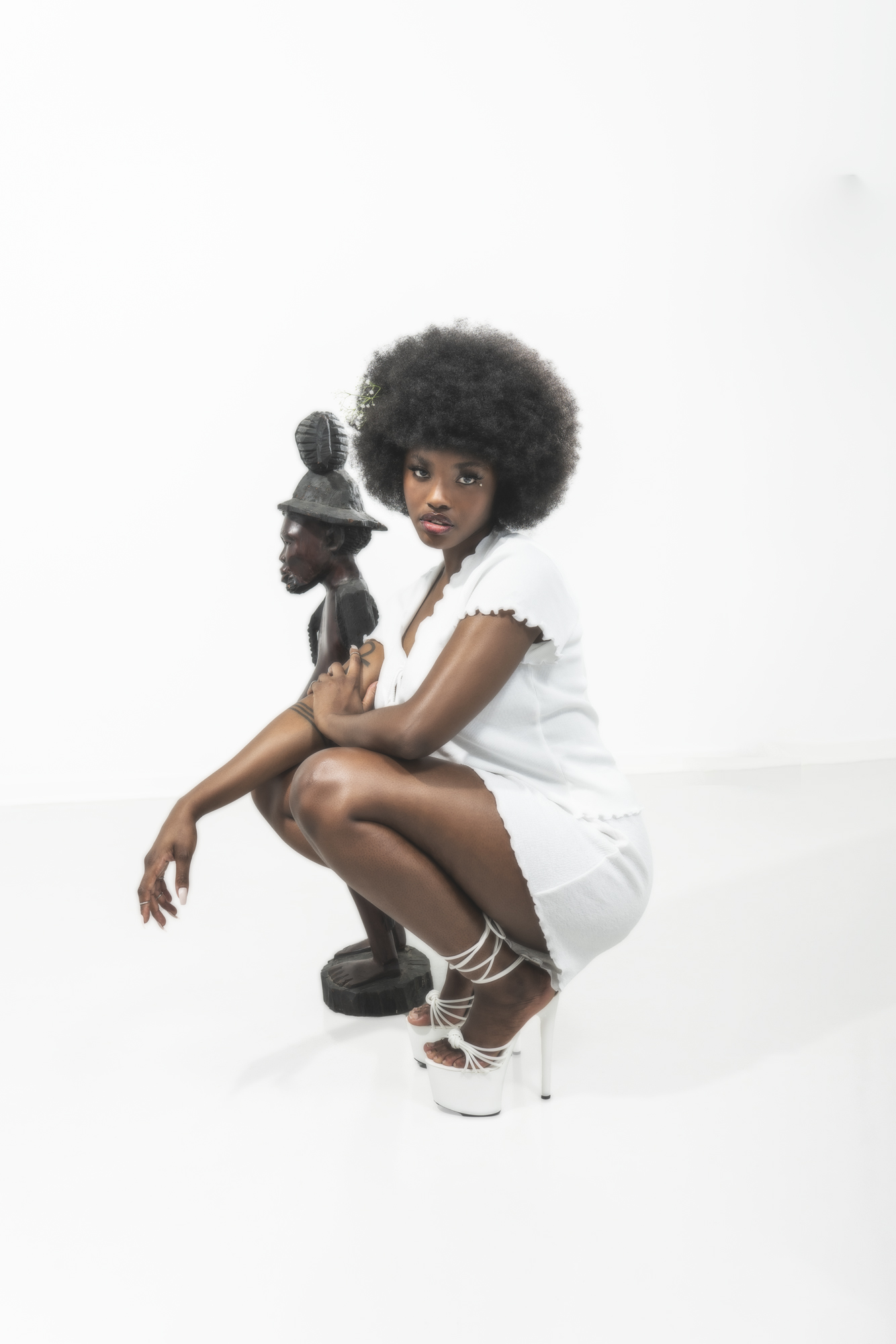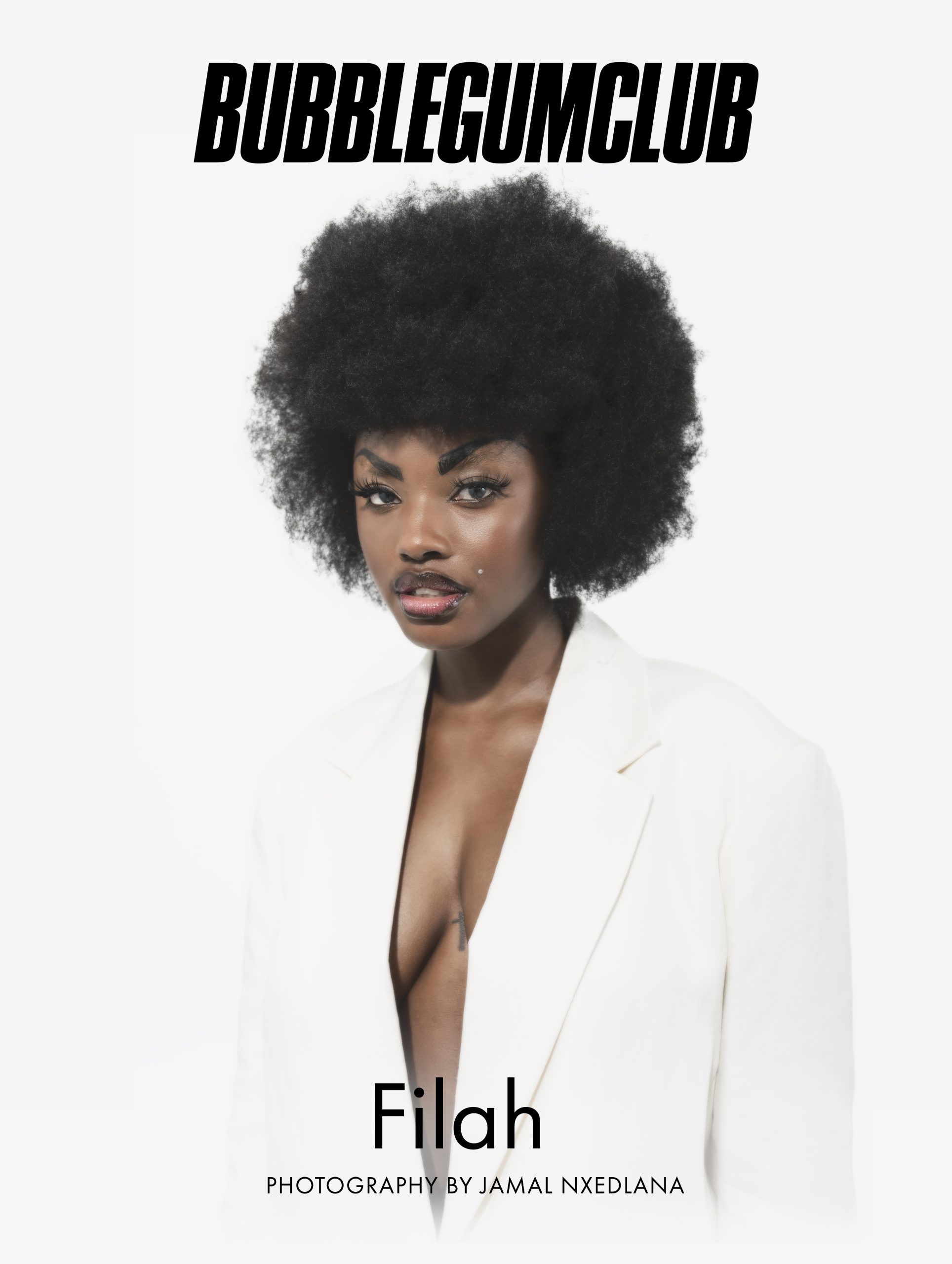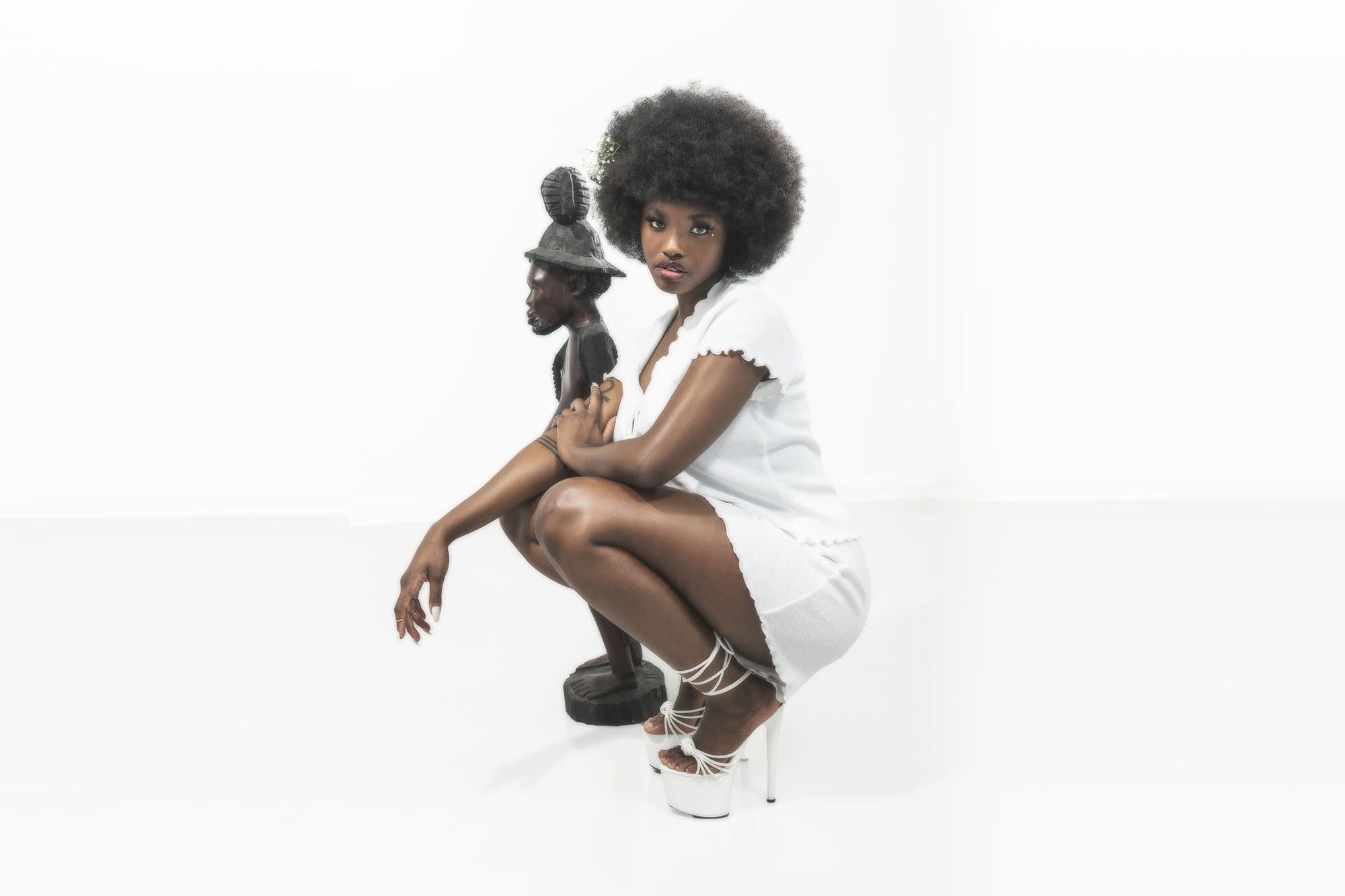From Nina Simone to Billy Holiday, Janet Jackson and Missy Elliot, the music industry has never known how to hold space for the work and abundant creativity of Black femmes — in the same way that the world has never known how to hold space for the lives and desires of Black women.
“We don’t know how to appreciate the worth of a person like Nina Simone for instance, who when she was at the top of her artistic game in the 1960s and early 70s, we just took her for granted,” expresses Wesley Morris on a podcast episode, and I hear it echoing back to me as I speak to the incredibly talented and deeply introspective alternative R&B singer and songwriter Filah Lah Lah.
“Sometimes I’m not aware of my influence cause I’m so busy trying to elevate myself, so I’m not always conscious of who’s watching and who’s willing to invest in me, and invest their time in me and invest opportunities in me,” Filah Lah Lah shares speaking about her recent performance at this year’s BET Soul Cypher. Rooting her musical practice in intuition, divine timing and feeling, there is a sense of wise introspection and rootedness I feel radiating from the artist while speaking to her — unsurprisingly so — as this can also be felt flowing in and through her sonic creations.
Filah Lah Lah and I communed in — virtual conversation — from afar, talking through early influences, Biggie Smalls, trusting your gut and so much more!
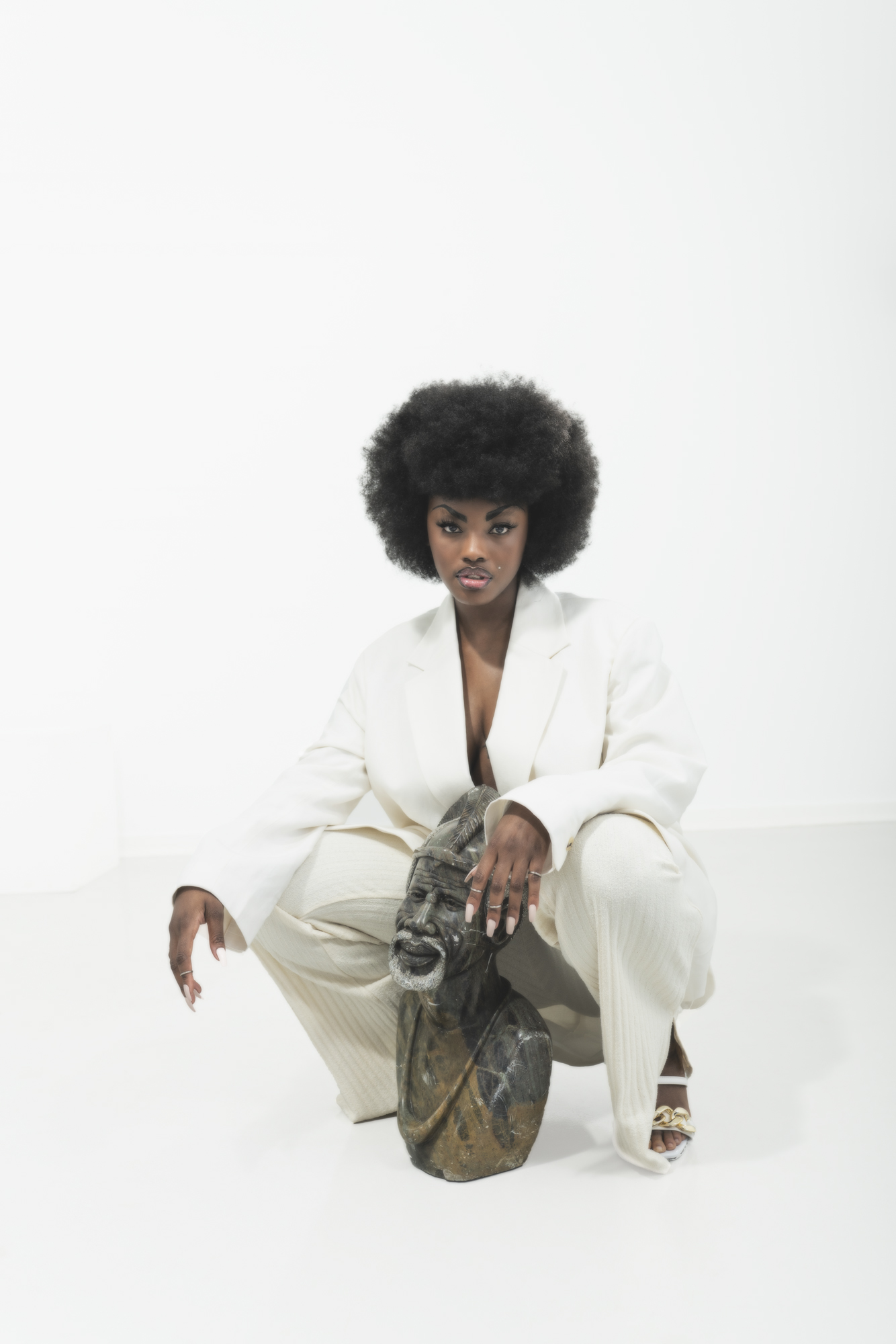
I want to start at the beginning of your relationship with music — which from what I’ve learnt while doing my research for this conversation seems to be inseparable from your relationship with your late father — who I read “went out of his way to ensure that [your] musical consciousness was guided by artists like Nina Simone, Marvin Gaye, Betty Wright and Smokey Robinson.”
Can you please tell me about how your relationship with him influenced or shaped your musical sensibilities and your own relationship with music, both as a listener and as an artist?
Filah Lah Lah: I think that my dad, well my dad was not very musically gifted himself, he couldn’t sing or anything like that but he was an avid listener and a very passionate listener and that’s how I started off. I [think] that’s how most people who end up making music start off, it’s as a listener and I just remember hearing those records with him and spending that time that we spent together — because we were best friends really in a lot of ways.
Spending all of that time and feeling, or just rather seeing him feel the way that he did about the music and spending that time with me, I just remember from a really young age wanting to emulate that feeling, wanting to be somebody who could create that feeling for other people. I think that’s where that bug bit me, of wanting to be an artist, was through this wonderful, wholesome, loving, caring and just spiritual feeling that music can give you — I wanted to be able to purport that and do it in my own way with the influences that I’ve had.
That’s really interesting, especially because I think that a lot of the time, how we enter into a relationship with music flows from the intimate connections with people in our lives. Jazz I met through my father, R&B and hip hop through a sister/lover/friend and rock n roll through my first partner. I think this led me to listen with my heart first before listening with a critical ear.
So, I find myself wondering, because your relationship with music is textured by the one you had with your father, would you say that you listen to and create music starting from a feeling, place or one of criticality?
Filah Lah Lah: Definitely from the heart, like Biggie Smalls said, “only make moves when your heart’s in it”. I take music so personally because I was kind of a loner as a child and we were moving from country to country so I spent a lot of time by myself with [my] own imagination and with these wonderful sonic discoveries I was making as well.
That kind of thing stays with you, especially in those formative years and I only know how to listen to music with my heart, I only know how to do that, and I only know how to make music from the heart as well.
You’ve just mentioned moving from country to country a lot while growing up, what are some of the places you’ve lived in and would you say coming into contact with these places and growing in them with all their varying textures had any kind of influence on your sound or sonic practice, implicit or explicit?
Filah Lah Lah: Well, we moved from the states to South East Asia — Indonesia in particular — and these are vastly different countries culturally. You’re always going to be influenced by [your] environment; we’re all products of our environments. It was weird I think because of the sense of isolation that I had — I mean I was different either way — I wasn’t African-American, and even in the neighbourhood that we were living in, there weren’t a lot of Black people.
I was the only Back kid in my class in those days and the only Black kid during [my/our] time in Indonesia as well, so I’ve faced a lot of rejections and microaggressions, and music was really all that I had to kind of relate to. You know you listen to Nina Simone and she sings like someone who is alone — in every sense of the word and you relate to that, it resonates with you even at a young age.
In terms of being influenced by my environments, I would make friends and it was okay. I learnt new things, I was very open to learning about new cultures, people and how they live because people live very differently out here and it was amazing to see that first hand but music was my anchor in every way.
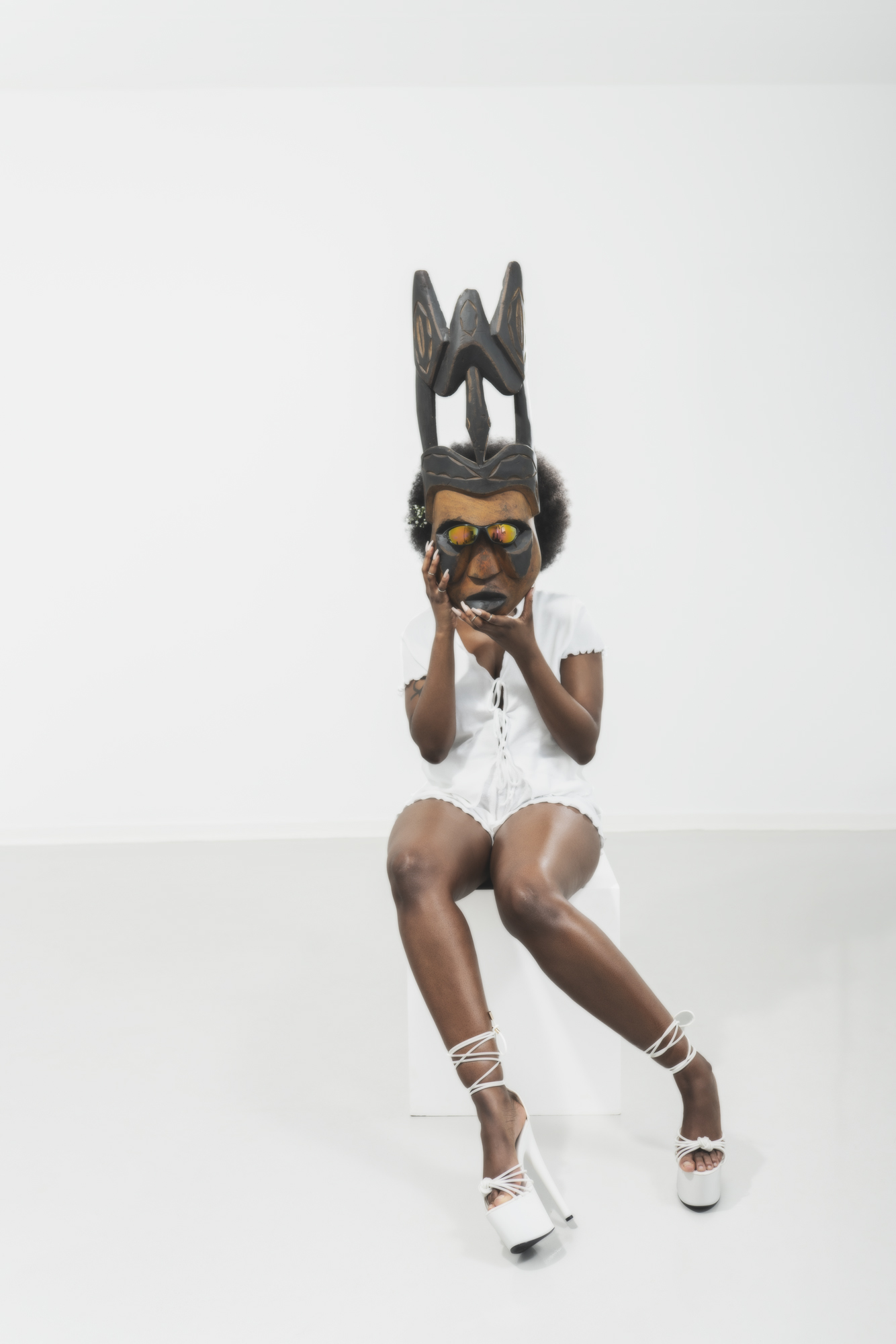
It sounds like music became a refuge of sorts, it’s interesting you bring up this feeling of otherness that you felt as you were growing up because that was actually one of the things I wanted us to talk through. I actually pulled a quote from an interview you had given last year where you say:
I was always different. In the way I thought, played, dreamt, spoke, looked. It’s contextual but there’s never been a moment in my life where I didn’t feel “other”. Music allows me to be “other”. It allows me to make the constant decision to be who I really am.
I’m wondering, beyond music giving you this space of self-making possibility, how has this feeling of being other and different flowed into your music and what unexpected creative lessons or gifts has it taught or given you?
Filah Lah Lah: I don’t know who said this, I think it might’ve been H.E.R and I’m just paraphrasing here but she [said] something along these lines: that artists are really just all emulating what they’ve heard before but it’s never going to sound like what they’ve heard before because they are themselves. It was years — I had to reckon with this sense of “otherness” for years. It was something that I didn’t invite. I wanted to feel like other kids and I wanted to act and think “normally” and all of those things — I really wanted to be whatever conventional or “normal” was.
When I started writing songs and realising what I was writing about and where it came from — then also realising that “oh you [know] I can make it sound a little more like something I would say if I do this or if I do that” — it was just kind of organic. I say this a lot, a lot of my musical journey came through things that I didn’t ask for. It was so fated and just so right place, right time — even when I wasn’t fully aware of it.
And so, that individuality in my music and the choices that I make when I write or my vocal choices — just everything— that’s all stuff that came really naturally to me but I was still fighting it because I hated that I didn’t sound like Nina or Betty or Diana. I didn’t sound like Erykah — my influences — Jill. I sounded like somebody who’s influenced by them but I didn’t sound like them. But you get older, and you realise that “oh okay actually, the way that I do it is still worth a damn! So I’m going to keep doing it this way.”
I feel like a big part of coming to that realisation, especially when growing up feeling alone or “other” enters the chat — that demands an almost fierce trust in yourself and the kaleidoscopic pieces that make you, you. I think that the fierce trust in yourself also cultivates an intimate relationship with your intuition.
Given the personal and experiential histories that your sonic practice is located in, has intuition become a companion in how you make, create and think?
Filah Lah Lah: Definitely, my intuition is extremely important to me. I didn’t realise it until…You know sometimes you don’t realise that you need to follow your gut until you actually do, until the time comes where your gut is literally all that you have.
I only play on intuition now, if things feel right, if it feels like it’s the time for them to happen, I’m there. It’s just how it’s always been but I’m in my mid 20s now and it’s getting more potent as the years go by.
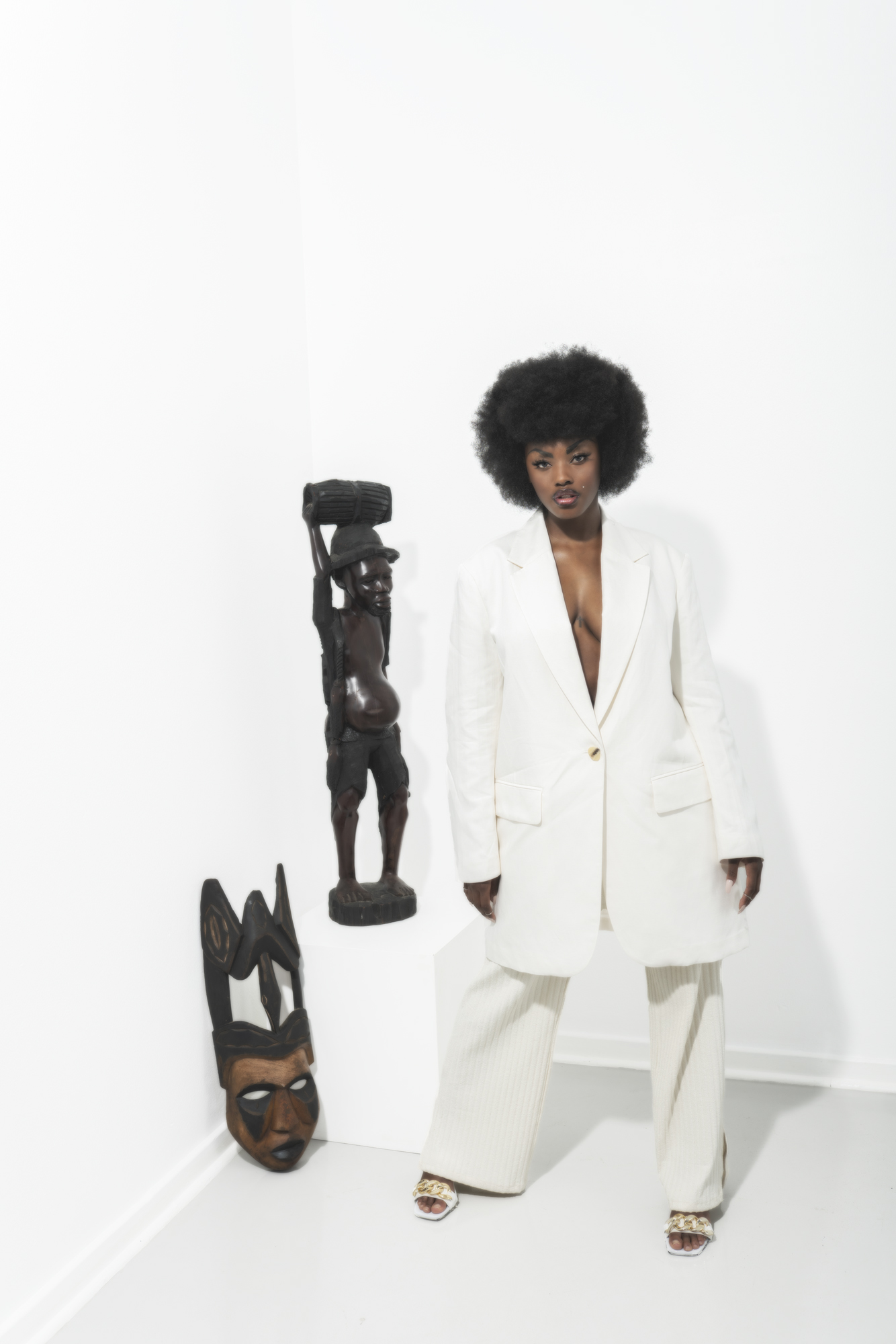
There’s this difference in tonal texture that happens from your 2020 release Filahsofy and your latest release We’re Gonna Just Fine. You can hear and feel Filah Lah Lah come through in both but with We’re Gonna be Just Fine, one gets the sense that something has shifted.
What is it — if anything — that changed for you as a person and artist between the two EP’s?
Filah Lah Lah: Growing pains, just the kind of things that we find ourselves having to go through in life, life can change so much in a span of a year. Loss, loss of love, loss of people in your life, all that kind of stuff. It was a very tumultuous time that I didn’t expect and I found myself sort of in a daze, like everything was a dream, and I think maybe that’s why the music on We’re Gonna Be Just Fine sounds very dreamy.
The way that We’re Gonna Be Just Fine sounds surprises me too, it was something that caught me off guard too but it was vital. I think that these changes that shift us, our lives and perspectives are so necessary. I’m so proud of that project, it’s ambient and whispery.
It’s a beautiful EP and I think it’s so refreshing to hear that what it eventually became surprised you too. It’s also funny you bring up its whispery quality cause that leads me to the next thing I wanted to ask you. There’s an incredibly mature sensibility flowing through your music. From the lyricism and lyrical content, to your voice’s tonal quality and the power of restraint you display in how you sing.
It has this neo-soul quality to it that reminds me a lot of the likes of Floetry to Goapele and Celeste, even Joni Mitchell — who doesn’t necessarily fit into the neo-soul label — but the politics of genre is a whole other conversation.
Is this a sensibility of emotional and methodological maturity that you’ve had to work at and harness or would you say you’ve always moved from this space?
Filah Lah Lah: I think that there are so many facets of my artistry that I have explored but not so much put out into the world and so something like We’re Gonna Be Just Fine, was something I knew I was always capable of but I wasn’t sure what space was going to give it room to exist. I really hate that artists need to go through something really freaking sad to find like the base, the foundation, for something really powerful.
I always knew that I had the writing ability and the vocal ability to create a project like that but it was also the right time, I just instinctively knew that this is the time for me to do this. This is how I feel like baring these emotions, a little less abrasively than I did in Filahsofy. I feel like Filahsofy has a sort of abrasiveness to it, it’s very aggressive and very, “hey these are my feelings,” whereas We’re Gonna Be Just Fine is more like “hey, what are feelings?”.
